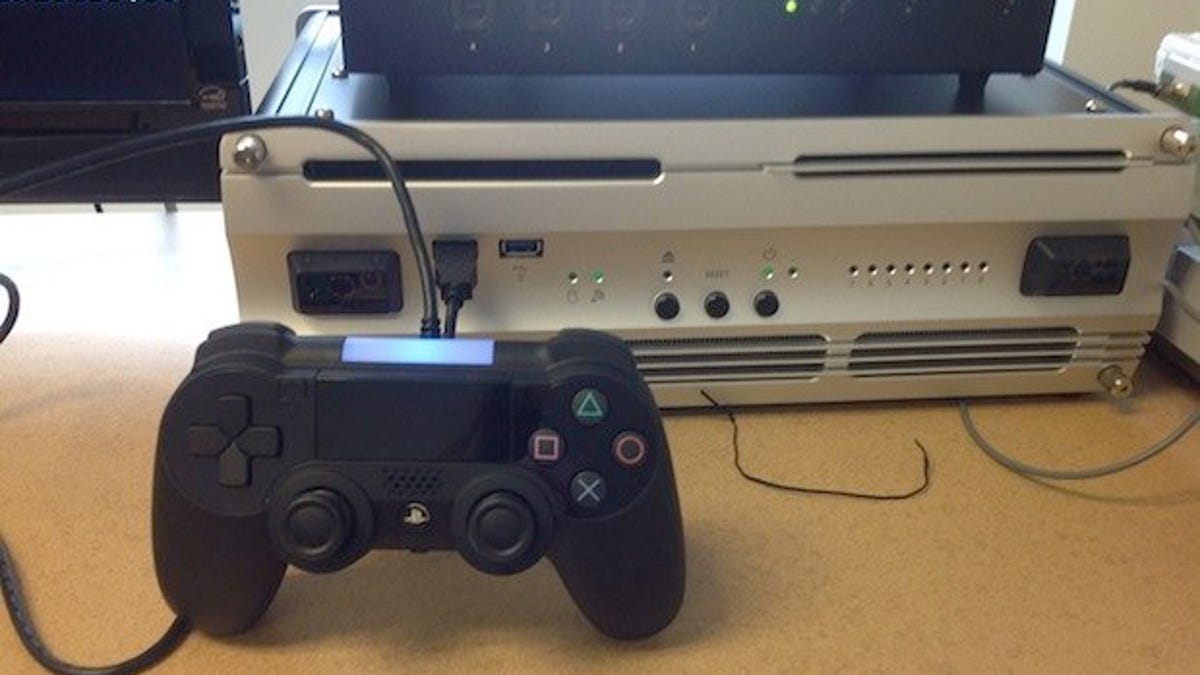PlayStation 4 should go all-in on cloud-streaming games
The technology for live-streaming gameplay is still imperfect, but the era of physical media is ending.

Based on the steady stream of rumors about Sony's upcoming next-gen living-room console, it's widely expected that gamers will be spending at least part of their time playing games streamed directly over the Internet.
According to the Wall Street Journal and others, Sony's acquisition of streaming-game provider Gaikaiin 2012 set the stage for streaming-game content, and the new Sony console, whatever it's called, will offer both streamed games and games played via traditional optical disc, purportedly older catalog titles for the former, and newer games via the latter.
Join CNET's live coverage of Sony's event on Wednesday at 3 p.m. PT/6 p.m. ET
A move to streaming games is a far-thinking idea, and one that would reduce the need for large amounts of local storage for fully downloaded games, as well as the need to manufacture, transport, and store physical game discs -- with games joining music and movies as media types moving away from being distributed through retail stores on disc.
The idea of streaming game content is one we've been playing with for some time. The best-known player in this space is OnLive, a PC-based service that runs game software on a remote server farm and then streams the action, in real time, to players interacting via a controller or mouse/keyboard combo. Since that service launched in 2010, we've been reasonably impressed with it, although it works better for some games than others (for example, casual or third-person action games work better than first-person games, which are more sensitive to even the slightest lag).
The biggest pushback (besides the fact that OnLive has struggled to succeed) is that streaming games are far too reliant on your broadband Internet connection, which can be flaky, slow, or sometimes out altogether. This, coupled with the lag already built into live cloud game delivery, is enough to potentially turn off consumers.
Legitimate concerns, to be sure, and I have no illusion that today's A-list games could all be converted to cloud streaming right now and deliver the same high level of visual quality. But, the discussion about Sony and Gaikai reminds me of a conversation I had at the 2011 E3 video game trade show with John Carmack, a PC gaming legend and the lead programmer behind classics such as Doom and Quake. I asked him about streaming games in general, and OnLive specifically, and this is what he said:
I've played the OnLive stuff and a lot of people have just enough technical knowledge to count it out for the wrong reasons. When you talk about having a 50ms ping, that does not invalidate the process. One of the points that I make is that if you take a lot of the console games out there, and you're playing with your wireless controller, going through your post-process TV, the games themselves often have multiple frames of latency.
You get an event, you pipeline an animation, and it goes to the render thread and the GPU. A lot of games have over 100ms of latency in them right now. Now it's true that adding latency is always bad, and with OnLive, you're adding a compression step and two transmit steps.
But the laws of physics do not guarantee this to be a bad idea. I don't necessarily think any of the current players will live to see the pot of gold at the end of this rainbow, but I'd say it's almost a foregone conclusion that five or ten years from now, that's going to be a significant marketplace.
From a raw technical standpoint, it has too many positives going for it. There are negatives, but a lot of times, people will accept a big negative for a much bigger win. And the win for convenience and managing your library is huge. And the win for publishers and developers -- zero piracy, instant patching, all that data gathering -- are strong advantages. I don't think it's the big thing next year, but I think it's coming.
Even if the next-gen PlayStation kicks off with only a nod to streaming games, the era of the physical disc is still winding down. The current Xbox 360, PlayStation 3, and Wii U all offer full game downloads (even if many of these consoles have limited onboard storage for full games), and a whole generation of media consumers already thinks of video and music as streaming products from Netflix, Spotify, and others, as opposed to something you get on a plastic disc.
The game publishers themselves would like nothing more than to kill disc-based gaming. Think of the fixed hard costs associated with manufacturing an optical disc, putting it in a box, loading it in a gas-guzzling truck, driving it to a store, placing it on a shelf, and waiting for a consumer to march in and buy it (to say nothing of the resale of used games, something game publishers hate). Many of these costs can be reduced in the future by digital distribution, both download and streaming -- not that gamers can expect to see any of the savings passed along to them.
Whatever new hardware is being announced by Sony later this week will surely include an optical drive, as will the inevitable Microsoft Xbox upgrade expected later this year. But if we take a look at the current state of laptops, there's something similar going on. Many popular models, from the MacBook Air to almost every ultrabook, omit the once-ubiquitous DVD drive. Taken to its logical conclusion, this may be the last generation of living-room consoles that include support for physical game discs.
Sony's PlayStation event will be held in New York on February 20, starting at 3 p.m. PT/6 p.m. ET. CNET will be liveblogging and livestreaming the event.

